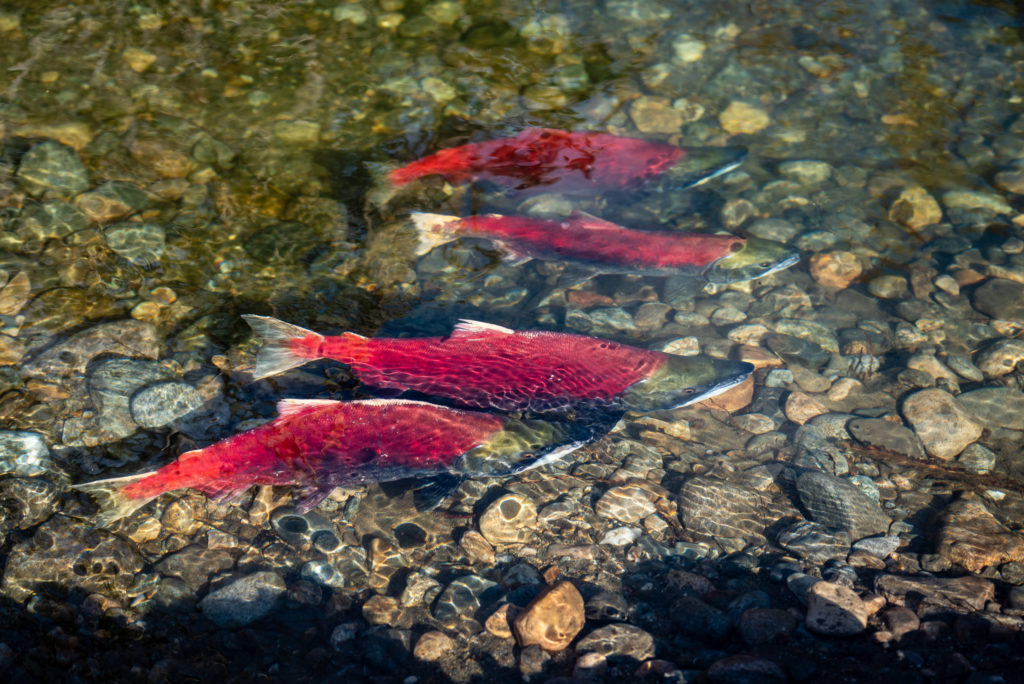Study points to mining conflict emerging at future salmon habits along BC-Alaska border

A new study has found that the retreating glaciers along the BC-Alaska border may not only provide a new frontline for mineral exploration, but also a future habitat for salmon species.
The study — led by researchers from Simon Fraser University and published in the journal Science — said the retreat of glaciers in the ice-covered transboundary region is creating thousands of kilometres of new rivers that salmon are finding.
Yet, in 25 of the 114 rivers surveyed by the study, more than half of the future salmon habitat would lie within 5 kilometres of a mining claim, which according to Jonathan Moore, the study’s lead author, shines a light on an emerging conflict.
“Climate change and other human activities are harming salmon populations in much of their range. Yet in some locations of northern BC and Alaska, glacier retreat is creating hotspots of opportunity for salmon, but also of mining pressure,” Moore said in a statement.
Moore, along with fellow SFU researcher Kara Pitman, previously mapped where and when future salmon habitat would be created with glacier retreat, but this is the first time work has been to assess the potential overlap between these areas and mineral exploration.
Moore also stressed that the arrival of salmon during retreating glaciers is happening in “real time.” By 2100, another 6,000 kilometres of salmon habitat will open up for pink, coho and sockeye in the prolific mining area known as the Golden Triangle.
“We have ice retreating, and right at this ice edge, we have these new ecosystems that are being born, these ecosystems that are transforming,” he said.
“And then we started to come across some quotes from mining companies saying, ‘Hey, we’re looking to the edges of glaciers for mineral deposits that haven’t ever seen the light of day in the last 15,000 or 20,000 years.’”
The study also echoed the previous calls to modernize the BC Mineral Tenure Act by including Indigenous consultation before granting mineral claims to mining companies. In September, the BC Supreme Court answered those calls and ordered the Province to modernize the Act in the next year and half.
“These changes can’t come soon enough,” says Tara Marsden, with Gitanyow Hereditary Chiefs, a study co-author. “The Mineral Tenure Act not only violates Indigenous rights but also undermines stewardship of ecosystems for future generations.
{{ commodity.name }}
{{ post.title }}
{{ post.date }}




Comments